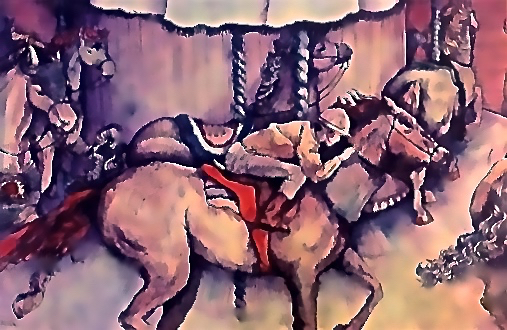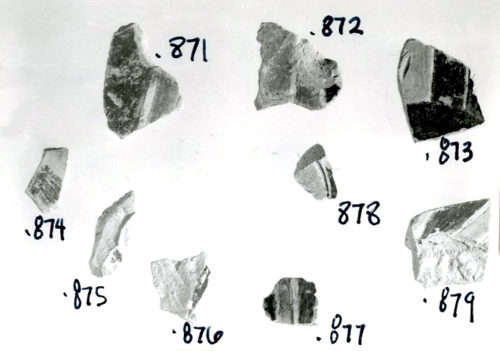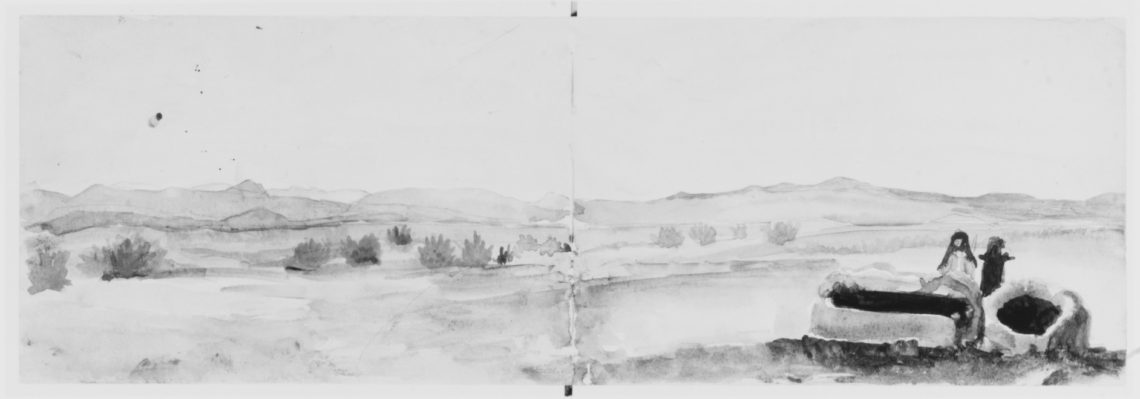Prose
-
“Elisa” excerpt from the novel The One We Adored by Catherine Cusset (translated from the French by Armine Kotin Mortimer) Artwork by Ilan Averbuch
“Elisa”
excerpt from the novel
The One We Adored
by Catherine CussetIn this novel, Catherine speaks in the first person and addresses Thomas in the second, as if telling him the story of his life.
At the dinner I arrange for my husband’s birthday at the end of February, you meet Elisa. You are astonished to discover that this name, with its exotic sonorities, is simply spelled “Elisa,” not, as if it were French, “I-Laïza.” Even more surprised to see that this exotic Elisa I’ve been telling you so much about is so beautiful.
-
Black Is Over (Or, Special Black) by Tressie McMillan Cottom with Artwork by Merav Kamel
Above: from the Sketchbook of Merav Kamel
I’m looking for a mixed girl Asian, Jamaican
I’m looking for a mixed girl Puerto Rican, Haitian
I’m looking for a mixed girl
Cuban and White
I’m trying to get mixed up tonight like
Excuse me miss, what’s your name, where ya
from, can I come—T-Pain, “Mix’d Girl”
“Black people are over.” That is how it was said to me once.
-
“Diana the Thoroughbred” with Artwork by Rebecca Pyle
Above: “The Carousel and the Racehorse”
Pen, ink, and watercolor.They were headed for the track, one of the ones the Queen liked to enter her horses in. Gavin in his college days with friends had once gone to a track, but he had sworn then he would never bother again: it seemed a habit like smoking, sure to leave you wishing you had never begun, or like the habit of continually trying to meet girls, which would backfire, leave you apologizing or making excuses to half of them, not a spot you should want to find yourself in if you valued simplicity.
-
“The Salvage Yard” by Emma Burcart
The highway cut through the center of town and continued out into the country, wherewide expanses of grass and trees were dotted with the occasional mobile home, gas station, or church. Not much to do or see and most people drove through fast on their way to somewhere else, without looking out their windows. When outsiders came, it wasn’t on purpose and they never stayed long. Directions, a tank of gas and a cup of coffee, and they were gone. That was how everyone in town liked it; not being on the map was a point of pride for most. -
“Artemis” by Peter Warzel
The old dreams of hunting, the moon. Deep in the blood, memories of poets and kings asking for and receiving stories of the first and the last. The sanctuaries of Artemis are spread throughout the groves of the Mediterranean and she shape-changes by location. She, Artemis Diana, had come here, to my backyard.
On a Friday evening two years ago, the night of Zozobra burning when I refused to attend but could hear the groaning from Fort Marcy Park and the annoyance of the helicopters keeping order on the crowd, I was standing in the yard having a cigar and a beer and called my son Zach to remind him of the annual auto-da-fe,
-
“A Girl Who Eats Sparrows” excerpt from a novella by Zhu Yiye (translated from the Chinese by Liuyu Ivy Chen) Photography by Yi Xin Tong
A Girl Who Eats Sparrows
Introduction by Liuyu Ivy Chen
In these first two chapters, a group of men are drinking, eating fried soybean worms, and recalling their youthful days during the Vietnam War with disturbing detail. While their wives are excluded from the room, their small children play around the table and quickly pick up the battleground language—they begin a killing game to mimic the war glory, craving the thrill. The adults offer no explanation or guidance to help the children understand the brutality of the war—they don’t seem to understand it either,





